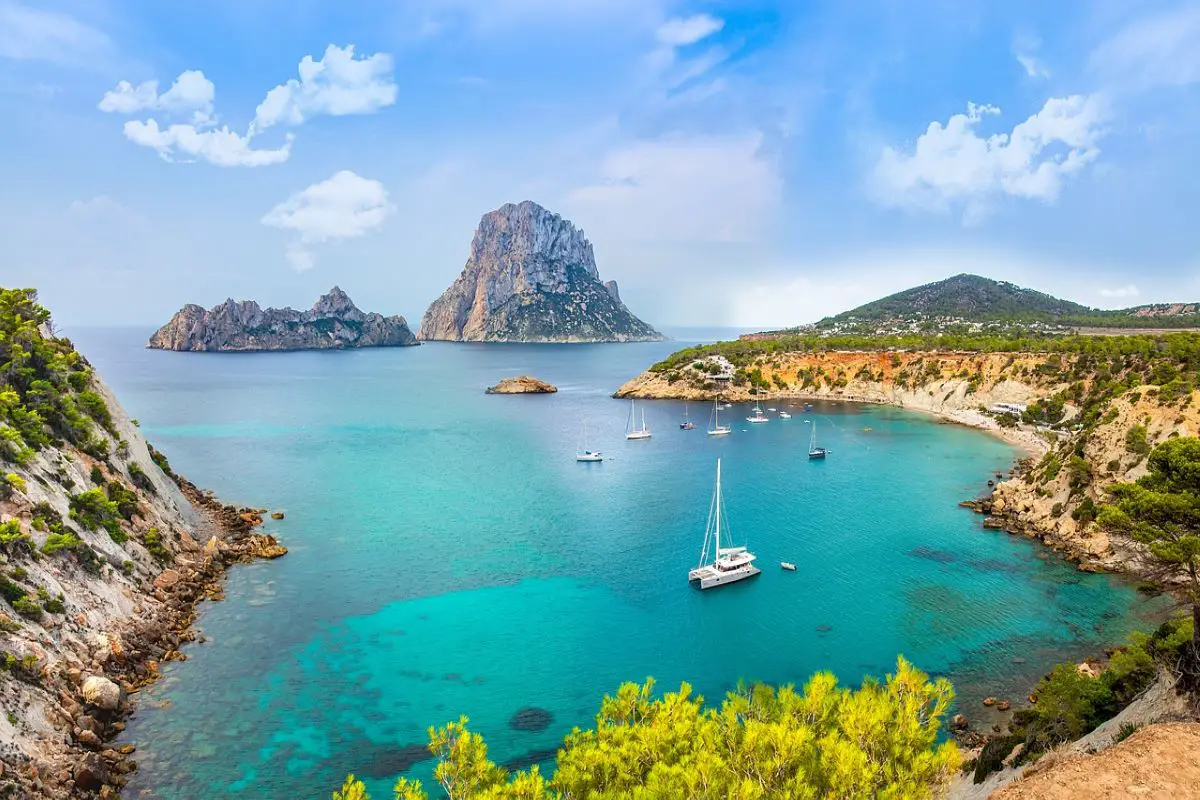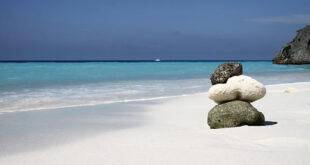Ibiza, as most people will know, is a small island located in the western Mediterranean Sea. It is the third largest of the Balearic Islands and part of Spain. The island is renowned for both its tourist industry and nightlife, which has led to it being one of the most popular holiday destinations in Europe. So, where is Ibiza located? Here are some facts about this historically and culturally important island.
Ibiza is a Spanish island located in the Mediterranean Sea, off the coast of Spain. It is part of the Balearic Islands and has a population of approximately 150,000 people. The capital city is also called Ibiza.
The island was first inhabited by humans as early as 6000 BC. It was then invaded by the Phoenicians around 800 BC and later became part of Carthage in the 6th century BC. The Romans conquered it in 123 AD but were driven out by Muslim invaders in 831 AD. The island was ruled by the Republic of Venice for three centuries until it was captured by Castille in 1235 AD.
What Is Ibiza Known For?
Apart from checking where is Ibiza located, people also want to know what it is known for. For centuries, Ibiza has been known as a mecca for the rich and famous. The island is a popular vacation spot for Europeans, who come to experience the luxury and exclusivity of the island’s hotels and resorts.
In addition to being known as a haven for celebrities, Ibiza is also famous for its nightlife. It is one of the most popular destinations in Europe for tourists who want to party all night long. The island’s many nightclubs often have world-class DJs that attract thousands of revelers from across Europe.
What Is The Climate?
Now that you know where is Ibiza located, let’s look at the climate. Ibiza is a small island in the Mediterranean Sea. It’s located off the coast of Spain, and is the third largest of the Balearic Islands. The climate in Ibiza is Mediterranean, with mild temperatures and low rainfall.
The average temperature ranges from 57°F in January to 80°F in August. However, it can be significantly warmer or colder depending on where you are on the island. For example, inland areas tend to be cooler than coastal areas because they are higher up and receive less sun.
Ibiza receives about 1,100mm of rain each year—not enough for agriculture—but much more than other Mediterranean islands like Malta or Cyprus do. Rainfall tends to be heaviest during autumn months (September through November) and least heavy during springtime (April through June).
What Is The Official Language Of Ibiza?
After known where is Ibiza located, the language shouldn’t surprise you. The official language of Ibiza is Spanish. However, the island also has its own dialect called “Ibicenco,” which is part of the Catalan language family. There are many other native languages spoken on the island, including French, German and English.
Do People Go To Ibiza Only For Parties?
People go to Ibiza for many reasons, but the most common one is partying. Every year, thousands of people visit the island to attend parties and enjoy the beautiful atmosphere. They often stay at all-inclusive resorts or hostels, where they can enjoy their trip without having to worry about anything else.
Some people also come to Ibiza because of its beautiful nature. This island has stunning beaches and amazing views, so it’s no wonder that many tourists want to visit it! There are also those who come here for business purposes—they want to meet with clients or colleagues at one of the many conferences held on this island every year.
Which Is The Closest City To Ibiza?
Ibiza is an island in the Mediterranean Sea, just off the coast of Spain. It’s a popular tourist destination for people who want to party and listen to music. Ibiza is part of the Balearic Islands, which also include Formentera, Cabrera, and Mallorca.
Palma de Mallorca is a city in Spain located on the island of Mallorca. The closest city to Ibiza is Palma de Mallorca by about 30 miles (50 km).
Is It Safe To Travel To Ibiza?
Yes, it is safe to travel to Ibiza. Ibiza is one of the largest of the Balearic Islands and is located off the coast of Spain. The island has a population of about 150,000 people and an area of 446 kilometers squared. Ibiza is known for its beautiful beaches, vibrant nightlife, and incredible food.
The island has a thriving tourism industry that includes hotels, restaurants and bars, as well as shops and other attractions. Ibiza also has a rich history that dates back over 2,500 years ago when it was first inhabited by Phoenicians who migrated from mainland Europe in search of metals such as copper and lead ore. From then on until today, many different cultures have settled there including Greeks, Romans, Carthaginians and Visigoths.
What Is The Best Time To Visit?
Ibiza is located in the Mediterranean Sea, just off the coast of Spain. It has a population of about 150,000 people and is known for its beaches, nightlife and rich history.
The best time to visit Ibiza depends on what you want to do there. If you’re planning on spending most of your time at the beach or partying at night, then you’ll want to go during the summer months. These are June through September. This will give you plenty of time to enjoy outdoor activities and warm weather while avoiding crowds and high prices during peak season.
If you’re looking for something other than sunbathing and partying, then you might consider visiting Ibiza during the winter months. The temperature here averages between 55-60 degrees Fahrenheit (12-16 C) year-round so it’s never too cold or too hot! Plus, this is when many festivals take place so there will be plenty of entertainment options available for those who aren’t interested in partying 24/7 (though they do have plenty of clubs open throughout).
Conclusion
The island of Ibiza is full of beautiful sceneries and amazing things to do. We recommend visiting beach clubs, walking through the forest, and spending hours on the beach. The weather tends to be sunny and warm year round, so the best times to visit the island are from June to September, when the water temperature is still pleasant.
You May Like This Article As Well:
 Being Human
Being Human




